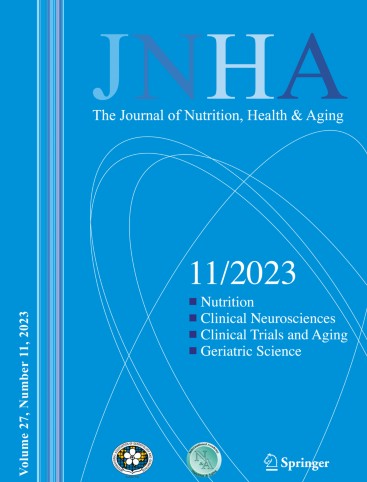Association of calcium supplement with risk of incident arrhythmia
IF 4
3区 医学
Q1 GERIATRICS & GERONTOLOGY
引用次数: 0
Abstract
Background and aims
Calcium plays a crucial role in cardiac electrophysiology, but the association between calcium supplement and the risk of incident arrhythmia remains unclear.
Objective
To investigate the relationship between habitual calcium supplement and incident risk of cardiac arrhythmia.
Methods
We conducted a prospective study of 480,972 participants from the UK Biobank. Habitual calcium supplement was treated as the main exposure. The primary outcome was the incidence of arrhythmias, including atrial fibrillation/flutter (AF/AFL), ventricular arrhythmia (VA), and bradyarrhythmia. Cox proportional hazards regression models were used to estimate hazard ratios (HRs) and 95% confidence intervals (CIs).
Results
After a median follow-up of 11.69 years, 46,609 incident arrhythmia cases were documented, including 36,406 AF/AFL, 5,370 VA, and 14,226 bradyarrhythmia. After multivariable adjustment, calcium supplement was associated with an increased risk of total arrhythmias (HR 1.11, 95% CI 1.05–1.19), AF/AFL (HR 1.20, 95% CI 1.12–1.28), VA (HR 1.14, 95% CI 1.07–1.21), and bradyarrhythmia (HR 1.18, 95% CI 1.11–1.26). Significant interactions were observed between calcium supplement and estimated glomerular filtration rate, diabetes, cardiovascular disease, and polygenic risk score for AF (all p for interaction < 0.05).
Conclusions
Calcium supplement was associated with an increased risk of incident arrhythmia. Careful evaluation of the potential arrhythmic risk is warranted when considering calcium supplement in individuals with clinical indications.
钙补充与心律失常风险的关系
背景和目的钙在心脏电生理中起着至关重要的作用,但钙补充与心律失常发生风险之间的关系尚不清楚。目的探讨习惯性补钙与心律失常发生风险的关系。方法我们对来自英国生物银行的480,972名参与者进行了一项前瞻性研究。以习惯性补钙为主。主要终点是心律失常的发生率,包括心房颤动/扑动(AF/AFL)、室性心律失常(VA)和慢性心律失常。采用Cox比例风险回归模型估计风险比(hr)和95%置信区间(ci)。结果在中位随访11.69年后,记录了46,609例心律失常事件,包括36,406例AF/AFL, 5,370例VA和14,226例慢性心律失常。多变量校正后,钙补充与总心律失常(HR 1.11, 95% CI 1.05-1.19)、AF/AFL (HR 1.20, 95% CI 1.12-1.28)、VA (HR 1.14, 95% CI 1.07-1.21)和慢性心律失常(HR 1.18, 95% CI 1.11 - 1.26)的风险增加相关。补钙与肾小球滤过率、糖尿病、心血管疾病和房颤多基因风险评分之间存在显著的相互作用(相互作用均为p < 0.05)。结论补充钙与心律失常发生风险增加有关。在考虑对有临床适应症的个体补钙时,应仔细评估潜在的心律失常风险。
本文章由计算机程序翻译,如有差异,请以英文原文为准。
求助全文
约1分钟内获得全文
求助全文
来源期刊
CiteScore
7.80
自引率
3.40%
发文量
136
审稿时长
4-8 weeks
期刊介绍:
There is increasing scientific and clinical interest in the interactions of nutrition and health as part of the aging process. This interest is due to the important role that nutrition plays throughout the life span. This role affects the growth and development of the body during childhood, affects the risk of acute and chronic diseases, the maintenance of physiological processes and the biological process of aging. A major aim of "The Journal of Nutrition, Health & Aging" is to contribute to the improvement of knowledge regarding the relationships between nutrition and the aging process from birth to old age.

 求助内容:
求助内容: 应助结果提醒方式:
应助结果提醒方式:


